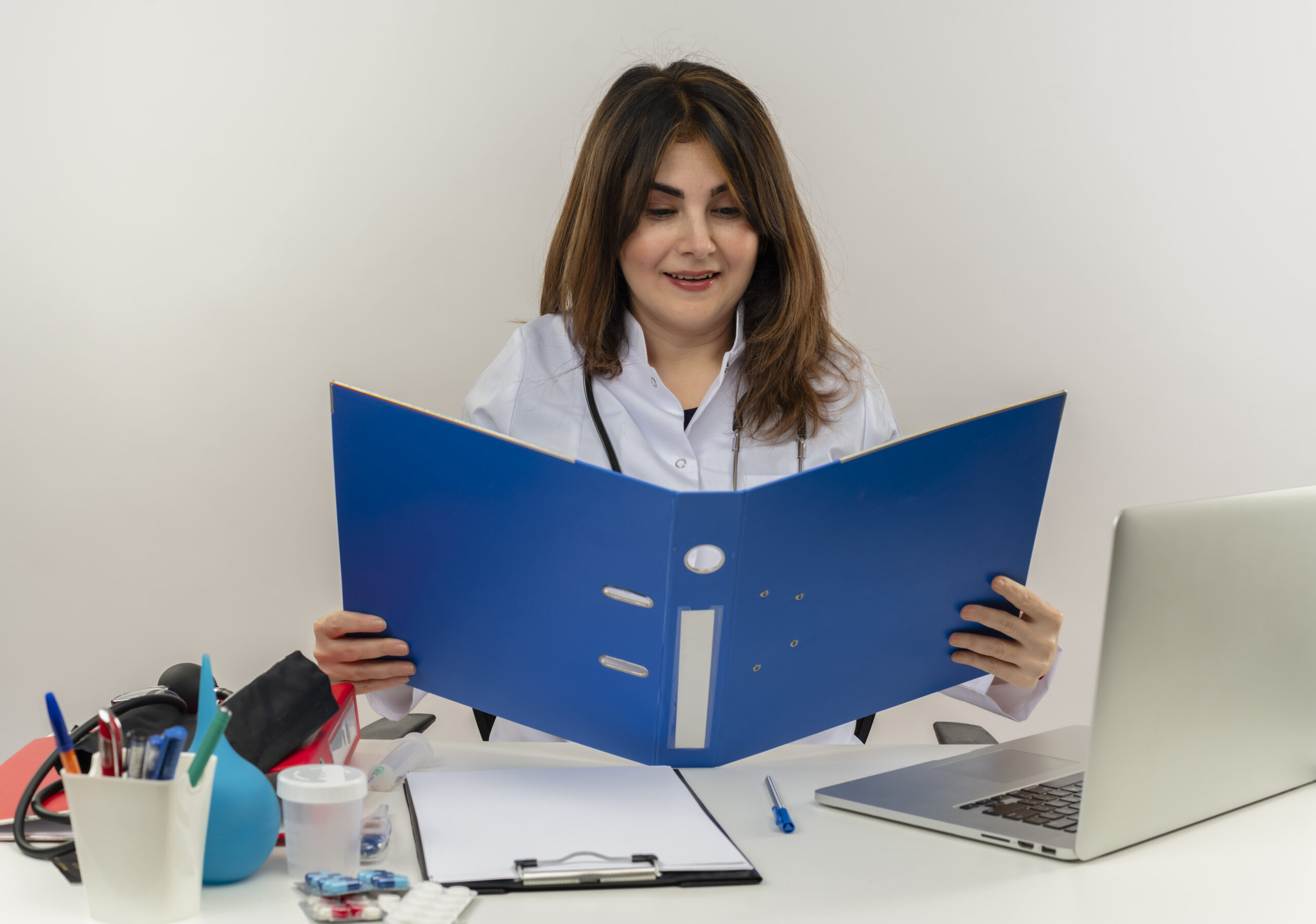You juggle careers, families, grocery lists, community volunteering, and everything in between. You’re the caregiver, the decision-maker, the problem-solver — and yet, when it comes to your own health, you often put yourself last.
Healthcare is not a luxury or something to get around to “someday.” It’s a vital part of your well-being, your independence, and your quality of life. Whether you’re approaching Medicare eligibility or already enrolled, understanding how to navigate Medicare — especially as it relates to women’s health needs — can help you take better care of you. And you deserve that.
Let’s break down how Medicare can support the women who do it all — starting with the essentials: doctor’s appointments, mammograms, preventative screenings, and more.
Understanding the Basics: What Does Medicare Cover for Women?
Medicare is a federal health insurance program primarily for people aged 65 and older, although certain individuals with disabilities may qualify earlier. It consists of different parts:
- Part A (Hospital Insurance): Covers inpatient care in hospitals, skilled nursing facilities, hospice, and some home health care.
- Part B (Medical Insurance): Covers doctor’s visits, outpatient care, preventive services, and some home health care.
- Part D (Prescription Drug Coverage): Helps cover the cost of prescription medications.
- Medicare Advantage (Part C): An alternative to Original Medicare that bundles Parts A, B, and usually D with extra benefits.
For women, Medicare provides a comprehensive range of services focused on preventive care, chronic condition management, and wellness — if you know where to look.
Mammograms: The Must-Do Screening for Women
Breast cancer is the most common cancer among women in the U.S., making regular mammograms a critical component of women’s preventive care.
What Medicare Covers:
- Screening Mammograms: Medicare Part B covers one screening mammogram every 12 months for all women age 40 and older. There’s no cost to you if your provider accepts Medicare.
- Diagnostic Mammograms: If your doctor suspects something or you have a history of breast cancer, diagnostic mammograms are also covered, but you may pay a 20% coinsurance under Part B.
Check whether your facility is Medicare-approved and whether your doctor accepts “assignment,” which means they agree to the Medicare-approved amount for services. This keeps your out-of-pocket costs lower.
Pap Smears, Pelvic Exams, and Cervical Health
Another vital service: Medicare covers Pap smears and pelvic exams, which can detect cervical and vaginal cancers early.
What’s Covered:
-
- Medicare Part B covers these exams once every 24 months, or every 12 months if you’re at high risk (e.g., history of cervical cancer, HPV exposure, or weakened immune system).
- Clinical breast exams are also included as part of this screening.
Remember: An ounce of prevention is worth a pound of cure.
Osteoporosis: Strong Bones, Strong Women
After menopause, women are at higher risk of osteoporosis — a condition that weakens bones and makes them more prone to fractures. Broken hips and other injuries can seriously impact independence and quality of life.
Medicare Support:
- Bone Density Tests (DEXA scans) are covered every 24 months under Part B — more often if medically necessary.
- Medicare may also cover certain injectable medications or IV infusions for women with osteoporosis.
Ask your doctor about calcium and vitamin D supplementation and regular weight-bearing exercise as non-medical preventive measures.
Annual Wellness Visit: A Personalized Health Plan
Did you know that Medicare offers an Annual Wellness Visit completely covered under Part B?
This isn’t just a typical check-up — it’s a proactive, personalized strategy session between you and your provider to assess your current health and develop a plan for disease prevention.
During this visit, your provider may:
- Review your medical history
- Check your height, weight, and blood pressure
- Create a personalized health risk assessment
- Discuss advance care planning
- Schedule screenings like mammograms, colonoscopies, or mental health check-ins Women treat this appointment like an important meeting — because it is. Your health is your most valuable asset.
Heart Health: Know the Signs Cardiovascular disease is the #1 killer of women, often because symptoms present differently in women than in men.
What’s Covered:
- Cholesterol, lipid, and triglyceride screenings: Covered every 5 years under Part B.
- Blood pressure monitoring: Ongoing as part of preventive visits.
- EKG screenings: Sometimes included as part of your “Welcome to Medicare” visit.
Heart attacks in women can show up as fatigue, jaw pain, nausea — not always chest pain. Knowing your numbers and staying screened is crucial.
Mental Health: You’re Not Alone
Between caregiving, aging, widowhood, and health changes, many women face increased risk of depression and anxiety as they get older.
Medicare Can Help:
- Covers depression screenings once per year at no cost
- Offers coverage for therapy sessions with psychologists, psychiatrists, or social workers (20% coinsurance applies)
- Provides telehealth mental health services — including virtual therapy and consultations
There’s no shame in asking for help. Taking care of your mind is just as important as taking care of your body.
Prescription Drugs and Hormonal Health
From managing chronic conditions to dealing with menopause symptoms, prescription medications are often a necessary part of life for older women.
What to Know:
- Part D or a Medicare Advantage Plan with drug coverage is essential.
- Compare plans annually during Open Enrollment (October 15 – December 7) to ensure your current medications are covered affordably.
- Some plans cover hormone replacement therapy (HRT) if it’s deemed medically necessary.
Don’t let costs surprise you — being proactive can save you hundreds each year.
Caregiving While Caring for Yourself
Many women on Medicare are caregivers themselves — for aging spouses, adult children, or grandchildren. That’s a heavy lift, emotionally and physically.
But what happens when you need care?
Medicare doesn’t usually cover long-term caregiving at home, but it does cover:
During this visit, your provider may:
- Home health care (if ordered by a doctor)
- Durable medical equipment (like walkers or hospital beds)
- Hospice and respite care for terminal illness
You can’t pour from an empty cup. Use Medicare’s benefits to make sure you’re supported, too.
Empowering Women to Take Charge of Their Health
As women, we’re wired to take care of others — but thriving in our golden years requires taking control of our own health, too.
Medicare is a powerful tool, but it’s only as helpful as your understanding of it. From mammograms and mental health to bone scans and wellness visits, the resources are there — you just need to use them.
Next Steps:
- Schedule your Annual Wellness Visit
- Check your mammogram or screening schedule
- Review your Part D drug plan during open enrollment
- Talk to your doctor about additional screenings you may need
Final thought
Taking care of your health isn’t selfish — it’s an act of strength, wisdom, and love. As women, we often lead the charge in caring for others, but true wellness begins when we turn that care inward. Medicare gives you the tools to stay proactive, catch issues early, and live the vibrant life you’ve worked so hard to build. So book that appointment, ask the questions, prioritize the screenings — because when you take care of yourself, you’re not just investing in your future; you’re honoring everything you’ve already overcome. You’ve done it all — now it’s time to do it for you.
Book your medicare plan :
Visit : https://dmarinomedicare.com/ for more information.




